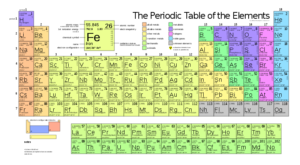Tuesday, April 14th, 2020
From Fawney to Phoney
Cathlin Berndt
Phoney, which today means “Fake, sham, counterfeit; false; insincere” (OED s.v. phoney, sense 1), seems like a pretty straightforward word. However, that is not the case. This word, according to Cohen, has been a debated topic for over 100 years (Cohen 1). Phoney (or phony) is an interesting word. It looks like the word phone but has absolutely nothing to do with phones. There is evidence that the word phoney originated from the word fawney which means “A finger-ring” and is an Irish slang word (OED s.v. fawney, sense 1). The earliest form of fawney is in relation to fawney-rig which was a con game where someone would drop a ring in front of the person they were trying to con. They would then attempt to sell them the ring claiming that it was being sold at a way cheaper value than what it should have been, when in reality, they were making about ten times as much as the ring was worth (OED s.v. fawney, sense 2)
Click here to read more




